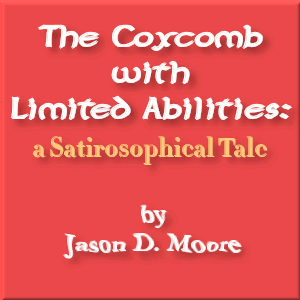Mini-Heap
The latest Mini-Heap:

- “In philosophy we tend to theorise too soon, about things that we don’t yet understand well enough because we haven’t looked at them hard enough before we rush into theory.” — Sophie Grace Chappell (Open University) on what it has been like for her to be a trans woman, and what can be learned from her experiences
- Political Science deploys devastating new weapon in best-disciplinary-conference wars— I think this is one of those situations in which no one will object to someone starting a petition
- Attempts to find out whether we’re simulated minds in a simulated world will be “either extremely uninteresting or spectacularly dangerous” — Preston Greene (Nanyang) in the NYT
- The charge of politicizing tragedy “has its purchase only if one thinks that the political considerations brought out in the grief are misguided or irrelevant” — Scott Aikin and Robert Talisse (Vanderbilt) on the charge of politicizing tragedy
- Ned Block (NYU) talks consciousness — on The Partially Examined Life podcast
- Philosophy Job Market Mentoring Program — those seeking mentoring and those able to offer it: sign up!
- Different theories in the philosophy of mind as illustrations — by Jasper van den Herik (EUR), with other suggestions in the replies
Mini-Heap posts appear when 7 or so new items accumulate in the Heap of Links, the ever-growing collection of items from around the web that may be of interest to philosophers.
The Heap of Links consists partly of suggestions from readers; if you find something online that you think would be of interest to the philosophical community, please send it in for consideration for the Heap. Thanks!



On link #3 (NYT article on whether we’re living in a simulation), I wonder if the author was trying to be ironic with the following:
“Consider the following hypothetical proposal for an experiment at the Large Hadron
Collider, the world’s largest particle accelerator: “This experiment is unlikely to succeed in
producing an interesting result, but if it does succeed in producing an interesting result, it
may cause the annihilation of our universe.” Would conducting this experiment be justified? Of course not.”
This actually isn’t a hypothetical. Some scientists, incl. eminent ones, speculated whether the LHC would produce mini-black holes, thereby swallowing up the Earth; but we did it anyway. Back in WW2, before the Trinity test (the world’s first nuclear detonation), scientists had estimated a 1-4% chance that the nuclear reaction would burn up our atmosphere; but we did it anyway.
This should tell you something about how human beings are.
https://www.sciencealert.com/cosmologist-martin-rees-warns-earth-smooshed-to-size-of-a-soccer-pitch-330-ft-by-particle-accelerator-experiments-lhc
Thank you for the link to the essay by Sophie Grace Chappell. I second it, emphatically. Philosophers have a tendency to rush into practical matters with declarations about what must be the case about some phenomenon well before living with it long enough to see what experience with it can teach us that a priori explorations of logical space cannot, and well before our familiarity with it can humanize and temper the attitudes that lay beneath our judgments.